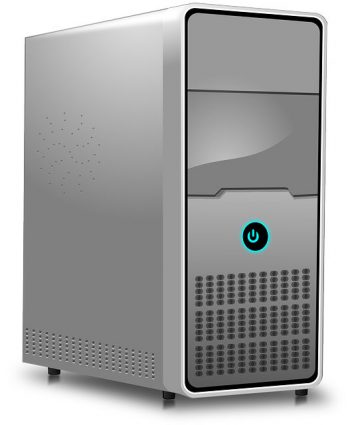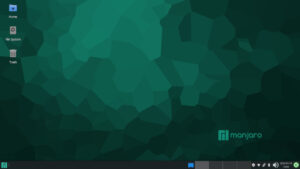At least three Linux distros have already quit releasing 32-bit versions, and Ubuntu seems to be standing in line to do the same. Is the end at hand for 32-bit mainstream distros?
News Analysis
We have three computers that see regular duty here at FOSS Force. Two are 64-bit laptops, one which is primarily reserved for out-of-the-office trips and the other used exclusively to test distros and software for reviews. The heavy lifting is done by our old 32-bit HP desktop.
In a month or so, when the Xfce edition of Linux Mint 18, otherwise known as “Sarah,” is released, we’ll be backing up our data and doing a clean install on the desktop. This will probably be the last operating system upgrade this computer will ever see. Sarah will be supported until 2021, and by then, this old computer will most likely have already given up the ghost. Even if it’s still running, however, it’s doubtful there will be a 32-bit version of Mint to run on it, as Canonical will probably have ceased development of the 32-bit version of its distro by then.
 I say “probably,” because so far dropping 32-bit support is only a suggestion that was made by Ubuntu developer Dimitri Ledkov in a mailing list post on June 28. In the email, Ledkov points out that maintaining a 32-bit version isn’t cheap.
I say “probably,” because so far dropping 32-bit support is only a suggestion that was made by Ubuntu developer Dimitri Ledkov in a mailing list post on June 28. In the email, Ledkov points out that maintaining a 32-bit version isn’t cheap.
“Building i386 images is not ‘for free’,” he wrote, “it comes at the cost of utilizing our build farm, QA and validation time. Whilst we have scalable build-farms, i386 still requires all packages, autopackage tests, and ISOs to be revalidated across our infrastructure.”
The email was the most recent in an exchange between Ledkov and Bryan Quigley on the subject that began in February. In the emails, Ledkov makes it clear that his advocacy for quitting 32-bit support isn’t because of a lack of 32-bit hardware. There are security issues at play, and independent software vendors, including Google for it’s Chrome browser, have been dropping support for 32-bit Linux.
“The key point here is lack of upstream software support and upstream security support on i386, rather than actual hardware being out of stock and/or old.”
I suspect that this will happen and that other major distros will follow suit. Already there are no 32-bit versions of openSUSE, SLES and RHEL, although all three distros offer methods by which 32-bit legacy applications can be used.
There is no need for owners of 32-bit machines to panic, however. Although Ledkov’s proposed timeline calls for doing away with 32-bit iso images with the release of 16.10 in October, Ubuntu 16.04, the latest LTS release, will be supported until 2021. For those who hope to find usefulness for 32-bit hardware past that date, there will doubtlessly be many distros that will continue to offer 32-bit versions well into the future.
I also wouldn’t be surprised if 32-bit versions of some independent Ubuntu based distros continue to be released if Canonical quits 32-bit, perhaps by basing 32-bit versions on Debian, Ubuntu’s upstream source.
FOSS Force asked Jeff Hoogland, founder and lead developer of Bodhi Linux, an independent Ubuntu based distro that offers a special “Legacy” edition for older hardware, if Ubuntu dropping 32-bit support would result in Bodhi being released in only a 64-bit version.
“We will cross that bridge when we get there,” he said. “Bodhi’s next major release will be built on 16.04 which supports 32-bit. When we start building Bodhi 5.0.0 in another two years, we will see where everything is at.”
Now is probably as good a time as any for Ubuntu to drop 32-bit support for versions going forward. By 2021, when support will eventually go away for existing releases, most remaining 32-bit hardware won’t be much good as full-fledged desktops and will have been repurposed as servers, firewalls and the like. No doubt, there will be plenty of 32-bit distros still around for those purposes.
Christine Hall has been a journalist since 1971. In 2001, she began writing a weekly consumer computer column and started covering Linux and FOSS in 2002 after making the switch to GNU/Linux. Follow her on Twitter: @BrideOfLinux






I thought Canonical made this announcement about five years ago. Maybe I am wrong, and it has only been talked about for five years.
@charlie-tca, I have the memory that SOMEBODY said something like that in the past, that there was a major tempest in a teapot, and it died out. Lather, rinse, repeat. Again, this is an email between to people who “might” know.
There is the possibility that these things are being put out just to see (1) how much screaming and yelling results and (2) whether any substantive and meaningful information comes out from people responding. Okay, my Asus netbook is 32-bit and I’d hate to lose the ability to use it when I need it. OTOH, these are long-term support releases, so my fingers may be worn out before the support quits. I don’t know whether that was a quiet, dignified yell or useful information.
At this point, I’ll do shoulder shrug and say there will come a time, but it won’t be this week.
@charlie-tca A couple of years back Canonical made noises about doing this but decided against it at the time. It’ll be interesting to see what comes of it this time.
This can’t happen quickly, and I very strongly suspect multiarch will long outlive ia32 distros. Just too much legacy code, nevermind current code like the Steam installer.
Debian will support i386 for atleast another decade, seeing as they still support a crazy amount of other obsolete arch’s no one uses, so the few who do need not worry.
Debian should be fine for at least the next release – so that’s probably another four years or so – by which time 32 bit x86 architecture hardware will probably be marginal at best.
I currently have a single netbook which only supports 32 bit – it’s worth nothing whatever and has a fairly dead RTC – I’m fairly well convinced it will be dead within a couple of years.
I generally have quite a bit of old hardware that I cycle through and give away to people who can use it. I’ve basically stopped giving away 32 bit hardware at this time because most people aren’t satisfied with it on a desktop anymore. The people who can get the most out of it aren’t likely to need any help from me.
However, I recently supplied a 32 bit desktop to someone who wanted to get his old Linux drive back up (and that worked fine for him), and it worked fine as long as you didn’t expect too much, like playing HD videos in Firefox. I have an HP Compaq nc6120 with a later Pentium M sitting on my desk at work which I use to bypass our firewall and test connection to our Web sites from outside our network as well as when I need a serial port on a laptop. It’s probably the most capable 32 bit hardware that I still have in general operation. I also have an old Compaq (I think) laptop of some sort at home that works fine, which I think has a Pentium 4, as well as a Thinkpad T43 (I think that’s the model) from around 2003 that works as well as it ever did with a Pentium 4.
However, of the machines that I have still working with 32 bit hardware, they all have one thing in common. They aren’t running an Ubuntu derivative. The machine at work and the Compaq at home both have Debian 8 loaded, while the Thinkpad has Salix OS, Fluxbox Edition 14.1 on it. I’m not sure how many other people have switched their 32 bit hardware all to lighter distributions than Ubuntu based ones, but it seems I have.
I think everyone should migrate for 64-bit architecture. Some distros still generate 32-bit images for the old computers. But application developers should contribute, like Steam and Skype which have just 32-bit version (multi-arch support, but still).
I’m in a similar boat with 32 bit systems running Mint – my hope (and expectation) is that the new “Snap” update initiative for third party software will solve or at least ameliorate the biggest problem with keeping an “LTS” Ubuntu-base going for full term – stale repositories. While Ubuntu (and Mint) “LTS” has nominally supported the core OS the sad fact has been it’s repo for third party software falls behind current versions too quickly. The point release system has helped and Mint 17.x has been the best yet, though major software is still lagging in updates. “Snap” has been announced for Mint 18.1 point release, and hopefully that will a) work, b) be adopted by third party developers, and c) keep Mint 18 alive longer than my hardware.
Another gen or two (a year or so) and Raspberry Pi/Beaglebone type ARM SBC’s will outperform all but the beefiest 32-bit x86 machines.
Inexpensive, small, low-power…everything x86 based computers aren’t.
Holding onto Intel-based dinosaurs is going to become less and less practical (or desirable).
Even though (as mentioned in the article) Red Hat no longer maintains a full 32 bit architecture in RHEL 7, CentOS Linux 7 has a 32 bit architecture release in our Alternative Architecture Special Interest Group (AltArch SIG). That version will be maintained until June of 2024.
As I see it, eventually this won’t be much of an issue. Do you see or hear anyone complaining about connecting to the internet using a Dial-Up Modem? Or someone else complaining about there Mimeograph or Xerograph machines? No. Why? Because at some point the technology became out-dated. And while I’m a strong supporter of keeping tech alive. (Think Pad T410 & T420 running Ubuntu and Fedora respectively!) Even I knew to make sure that the version of Linux I installed was 64-Bit. Only because an educated guess dictates that the 32-Bit arch might not go the distance as long as the 64-Bit will. In regards to those who still HAVE 32 bit hardware that they want to keep running. There’s no dark future or doomsday time period….there are TONS of 32 Bit distros out there that don’t plan on cutting you off…..for as long as they can remain up and running. Linux isn’t like the rest of mainstream technology, they don’t abandon a type of tech just because the masses say so, they do it instead when they’re logically, physically, and intellectually unable to.
they are killing i386,
but nobody is killing yet i686 (which is also 32bit architecture)
@jet
>they are killing i386, but nobody is killing yet i686 (which is also 32bit architecture)
Sorry, Jet… were it that way and we would not have this conversation, for starters.
i386 was killed by lack of support — I’ve read Slackware or Debian (or both) were not really providing i386-compatible binaries but rather i486 ones. And then the kernel stopped supporting it (which is totally reasonable IMHO).
There was a talk back then (by some distros) to support i586 and up, which I understand to be an arguable position.
But then came the catch, probably started by Lubuntu: they claimed to support i586 but warned they would only care about post-Pentium 4 ones. The reasoning was based on chip launch time IIRC.
That de per se is already wrong: what matters is a chip end-of-life, not when it started. Because (correct me if I’m wrong), support should be priority to chips which were more recently on the market.
But then there’s the reality of development costs, lack of people etc. etc. One cannot blame a distribution for focusing their resources to attain a desired level of quality. I personally don’t criticize Lubuntu (or Ubuntu) for their decisions; it’s more like a communication issue. It’s annoying to have a i686 processor, download a distro and then see it crashes immediately because you don’t have the SSE2 instruction (present in all 64-bit CPUs AFAIU). And when a lot of distributions are based on that one (e.g. Ubuntu), there’s a ripple propagation that reduces distro choice across the Linux continuum for one’s particular hardware.
And things are still bad when a distro still supports it, because individual apps (like Midori) still demand that non-existing instruction and can crash even on an otherwise stable distribution. Same thing for Qt5-based apps (like KDE Plasma!).
So, 32-bit is still supported — but some people it’s not.